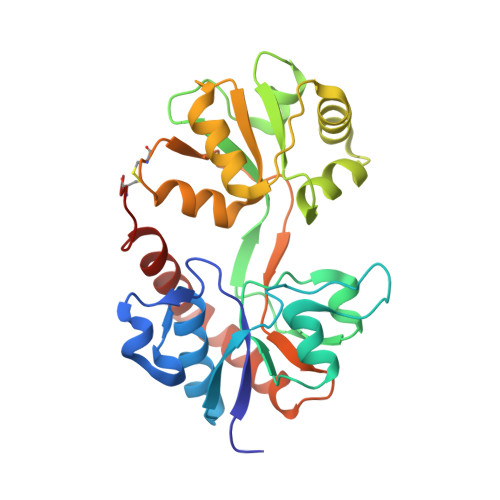Homomeric GluA2(R) AMPA receptors can conduct when desensitized.
Coombs, I.D., Soto, D., McGee, T.P., Gold, M.G., Farrant, M., Cull-Candy, S.G.(2019) Nat Commun 10: 4312-4312
- PubMed: 31541113
- DOI: https://doi.org/10.1038/s41467-019-12280-9
- Primary Citation of Related Structures:
6FQH, 6FQI, 6FQJ, 6FQK - PubMed Abstract:
Desensitization is a canonical property of ligand-gated ion channels, causing progressive current decline in the continued presence of agonist. AMPA-type glutamate receptors (AMPARs), which mediate fast excitatory signaling throughout the brain, exhibit profound desensitization. Recent cryo-EM studies of AMPAR assemblies show their ion channels to be closed in the desensitized state. Here we present evidence that homomeric Q/R-edited AMPARs still allow ions to flow when the receptors are desensitized. GluA2(R) expressed alone, or with auxiliary subunits (γ-2, γ-8 or GSG1L), generates large fractional steady-state currents and anomalous current-variance relationships. Our results from fluctuation analysis, single-channel recording, and kinetic modeling, suggest that the steady-state current is mediated predominantly by conducting desensitized receptors. When combined with crystallography this unique functional readout of a hitherto silent state enabled us to examine cross-linked cysteine mutants to probe the conformation of the desensitized ligand binding domain of functioning AMPAR complexes.
- Department of Neuroscience, Physiology and Pharmacology, University College London, Gower Street, London, WC1E 6BT, UK.
Organizational Affiliation:

















